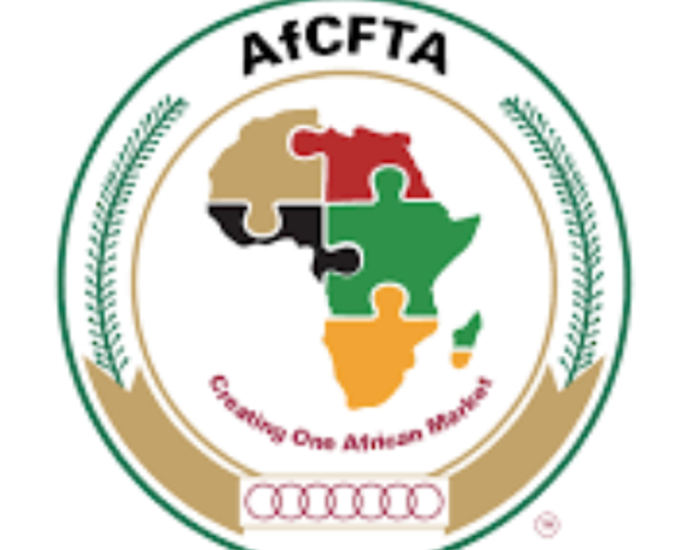The federal government has been urged to agree on a vision for the Nigeria’s industrialisation and follow it up with soundly articulated policy and plan for its implementation to enable the country to benefit from the emerging African Continental Free Trade Area (AfCFTA) market where manufacturing would be the dominant deciding factor.
This advice was given by a former Minister of Industry, Trade and Investment, Mr. Olusegun Aganga, who was also a former Minister of Finance, when he delivered the 3rd Adeola Odutola Lecture at the 51st annual general meeting (AGM) of the Manufacturers Association of Nigeria (MAN) with theme, “Setting the Agenda for Competitive Manufacturing Under the AfCFTA: What Nigeria Needs To Do.”
Aganga said: “Nigeria must act decisively and quickly. It must begin now to do the following: Agree on a vision for industrialisation with targets that the whole country will buy into. Develop a policy and plan of implementation.
“The Nigeria Industrial Revolution Plan (NIRP), which MAN helped develop is a good starting point. Let me remind you what NIRP set out to achieve: to make Nigeria a top 10 global player in at least 10 key manufacturing categories within the next five to 10 years. This was the vision and we thought it was realistic then as we do now.”
He added: “AfCFTA is situated within the context of Africa Agenda 2063, also known as ‘The Africa We Want.’ Africa Agenda 2063 is a strategic framework developed by the African Union (AU) to guide the continent’s development over the next five decades, from 2013 to 2063.
“Manufacturing plays a central role in the realisation of this Agenda. It is seen as a key driver of economic transformation and industrialisation, capable of generating employment, fostering intra-African trade, technological advancement and the reduction of poverty.
“The emphasis on manufacturing in both the AfCFTA and Agenda 2063 is not surprising given that the manufacturing sector accounts for about 70 per cent of global trade and about 30 per cent to 55 per cent of service jobs are related to the manufacturing sector.”
According to him, it is important to make it clear from the outset that in the modern global economy, industrial development is not luck but n outcome of a nation’s deliberate choice.
“Countries must, therefore, have an intentional, precise, and intense approach to nurturing and expanding Industrial activities. This is even more paramount for a country like Nigeria, starting from a relatively low manufacturing base,” Aganga said.
He said that in setting the agenda for Nigeria’s competitive manufacturing, he would like to direct the country’s attention to how China metamorphosed into a global manufacturing giant.
“So, I will focus on China because there are lots of lessons to be harvested from there. We do not need to reinvent the wheel. Over the years, China has implemented various strategies to make its products competitive in Asia and the global market. Some key factors that have contributed to China’s competitiveness include: investment in education and skills development, heavy Investment in economic and trade related infrastructure, and the establishment of Special Economic Zones (SEZs) such as Shenzhen and Pudong with adequate infrastructure. They also offered incentives to attract foreign investors and multinational corporations to set up manufacturing facilities in the country, ”he said.
He stated that Nigeria should borrow a leaf from China that, “identified and supported strategic industries that were critical for its industrial development and provided financial incentives, subsidies, and support to those industries to promote growth, exports and competitiveness.”
He added that China also “encouraged technology transfer by collaborating with foreign companies, universities, and research institutions” and “adopted flexible and adaptable Manufacturing to meet the different market demands” while it “entered into various bilateral and regional trade agreements with various countries, providing easier access to international markets for its goods. For example, China already has trade agreements with several African countries and regional organisations including South Africa – a member of BRICs, Angola, Ethiopia – a key partner in China’s Belt and Road Initiative (BRI), Kenya, Egypt, and Algeria to mention a few.”
Aganga highlighted in his lecture that embracing competitive manufacturing under the AfCFTA would be crucial for Nigeria’s economic growth and integration into the global marketplace.
“Nigeria may not be able to compete with China now but by investing in infrastructure, innovation and skilled labour while addressing trade barriers, the business environment and promoting market access, Nigeria can certainly position itself as the manufacturing hub in Africa.
“We must continuously monitor and evaluate our progress, making necessary adjustments along the way. The road to competitive manufacturing under the AFCFTA may be challenging, but with dedication, determination, and adaptability, we can pave the way for a thriving Nigerian manufacturing sector and a prosperous nation,” he concluded.





















